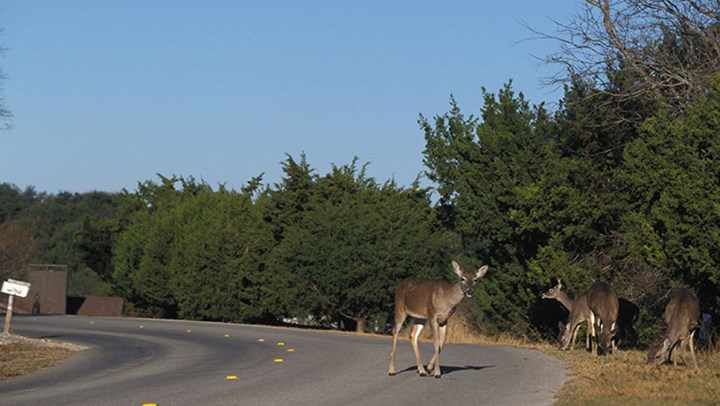
by Brian McCombie - Saturday, March 24, 2018

Cedar Rapids, Iowa, Harding Township in Morris County, N.J., and Little Rock, Ark., are hundreds of miles apart, yet they have one very interesting thing in common: Each municipality holds deer hunts to keep burgeoning whitetail numbers under control.
Adaptable whitetails have populated our cities and suburbs for decades. Without any predators, the deer have flourished to the point of creating numerous problems. While deer-vehicle collisions top the list, the hungry deer also eat up homeowners’ gardens and expensive landscaping and spread ticks infected with Lyme disease.
In response, hundreds of communities have embraced the urban/suburban deer hunting option. These hunts are nearly all archery-only. Usually, prospective hunters need to pass an archery proficiency test and pay a minimal registration fee. Many of the deer harvested end up processed and distributed to local food banks where the organic protein helps feed the needy through local Hunters For the Hungry programs that the NRA has supported since the HFH movement’s inception in the early 1990s.
For example, in Cedar Rapids, Iowa, “Hunters harvested 111 deer during the urban bowhunting season from Sept. 16 [2017] to Jan. 10 [2018], according to a news release from the city of Cedar Rapids,” The Gazette reported. “Seventy-eight hunters qualified for the bow hunt and 25 successfully killed at least one deer… . Hunters harvested 101 does, three button bucks and seven antlered bucks. Seventeen of the deer were donated to help feed the hungry in Cedar Rapids and Linn County.”
Deer hunts in and around Little Rock, Ark., are overseen by two hunting groups: the Bull Shoals Urban Bowhunters Association and the Arkansas Bowhunters Association. As noted in a recent article in the Log Cabin Democrat, “We’re fortunate to have these two partners step up and help administer these hunts, ensure the hunters are proficient and discreet and coordinate with the cities to prevent any conflicts,” said Ralph Meeker, Deer Program Coordinator for the Arkansas Game and Fish Commission. “Hunting is the most efficient means we have to control deer populations, and these hunts allow hunters to enjoy their sport while contributing to needy Arkansans throughout the state.”
One of the major benefits of these urban/suburban deer hunts is significant cost savings to the municipalities versus other control options. Consider the situation in Colorado Springs, Colo., where mule deer numbers often exceed 20 deer per square mile.
“Typically, in the rural, forested areas of the state, we see two to three deer per square mile," said Bill Vogrin, spokesman for Colorado Parks and Wildlife (CPW) to the Colorado Springs City Council. "That's the norm and what we consider healthy."
The City Council is considering various ways to control the deer. As reported by the Colorado Springs Gazette, in addition to hunting, “options include chemically sterilizing the deer, trapping and surgically spaying or neutering, trapping and euthanizing, or trapping and relocating. The options cost $500 to $3,000 per deer and are often ineffective.”
According to Frank McGee, area wildlife manager for CPW, “the most effective [population control] options boil down to hunting variations… . The city can hire sharpshooters or allow regulated hunting by local residents. Hiring hunters can cost up to $350 per deer, while regulated urban hunting is effectively free. …” Either way, McGee says the venison generally is donated to feed the less fortunate.
Seems like a no-brainer to institute an archery hunt. However, anti-hunting sentiment runs high among various groups in Colorado Springs, and past culls generated considerable conflict.
McGee noted that at least 200 deer must be removed every year, over a five-year period, to reduce local populations to acceptable levels. At the $350 per deer charged by professional sharpshooters, this would equal $70,000 per year times five years, for a total bill of $350,000.
So if the anti’s get their way, Colorado Springs residents will have $350,000 of their hard-earned tax dollars being spent on sharpshooters—likely with taxes raised or current programs cut to make up the difference. A recent media report suggested that the City Council was leaning toward the expensive sharpshooters option due to anti-hunting pressure.
One has to wonder if local tax payers realize that hunters would do the job essentially for free. Urban and suburban deer hunting is a proven method to control deer populations—but only if it is actually used.
E-mail your comments/questions about this site to:
[email protected]
